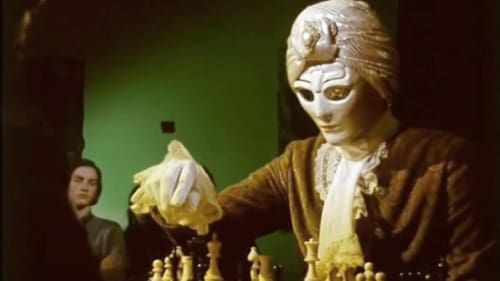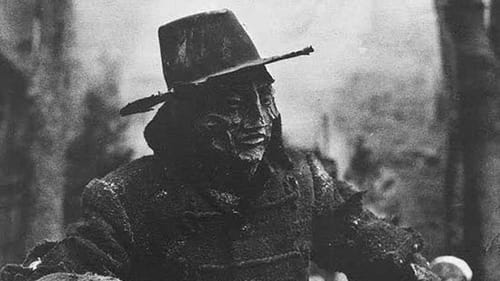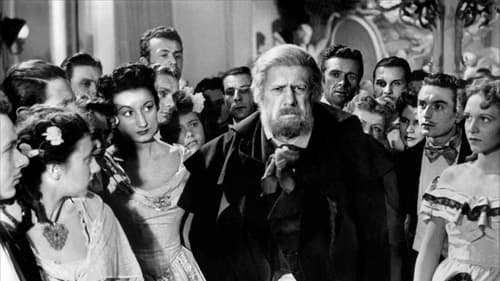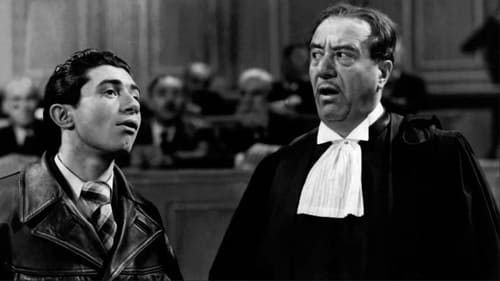André Reybaz
Nascimento : 1929-10-29, Paris, France
Morte : 1989-04-07
História
André Reybaz was a French actor. He had a long career spanning 40 years, which mostly consisted of numerous French television appearances. In 1950 he starred in the writer Jean Genet's only film, the influential Un chant d'amour (aka A Song Of Love), which focused on the longing desires of a prison guard and prisoners of a French jail.

Comte Saint-Germain
A young pianist is shocked when she witnesses a strange chess tournament with a robot. Could there be a gruesome secret behind this exhibition?

An election campaign becomes more interesting when anonymously published photographs depict the wife of a candidate, Dr. Peyrac, attending a sex party. Are the photographs fake or genuine ?

Covadenga

Narrator (French version) (voice)
French director Frederic Rossif presents this historical documentary that coincided with the 50th anniversary of the Russian Revolution. Stock footage from both World Wars are included with 30 minutes of new scenes filmed especially for the project. The historical timeline is traced from the time Czar Nicholas II is crowned. The emergence of Lenin, his death in 1924, and the later contributions of Trotsky and Stalin give the viewer a sense of death, betrayal, and ideological devotion to the communist agenda. Rossif effectively uses scenes from the landmark 1929 film The Man With A Movie Camera by celebrated director Dziga Vertov. Rossif researched the film archives from several countries in his meticulous gathering of materials for this timely historical feature.

Athanase Pernath
French TV adaptation of the Golem myth

Narrator
Maître Galip is the most poetic and powerful of Pialat's Turkish Chronicles, using the poems of Nazim Hikmet to accompany a series of evocative images of ordinary working class people in Istanbul. This was the film that Pialat himself claimed was the most complete realization of what he was aiming for with his Turkish documentaries. It's not difficult to see why this was his favorite: here he abandons the historical commentary and documentary observation of the other shorts in favor of an emotional emphasis on the lives of the poor and the unemployed.A short doc by Maurice Pialat.

Narrator (voice)
La Corne d'or is mostly concerned with religious ritual, examining the mosque (and former cathedral) discussed in Byzance. As a contrast against Istanbul's status as a center of historical religious conflict, Pialat — drawing here on texts by the French poet Gérard de Nerval — also describes the city as a place of strange ethnic and religious harmony, with representatives of various cultures and religions living in close contact. He emphasizes the city's hybrid culture, its blend of Southern European and Arab influences, reflected in both its people and its very construction.

Narrator
Byzance uses a text by Stefan Zweig to describe the Ottoman conquest of the city in 1453. Before he turned to feature filmmaking in 1968 with Naked Childhood, Pialat worked on a series of short films, many of them financed by French television. Byzance is one of Pialat’s six Turkish shorts.

L'abbé Pierre

Le père Simon
Originally titled Nous Sommes Tout des Assassins, We Are All Murderers was directed by Andre Cayette, a former lawyer who detested France's execution system. Charles Spaak's screenplay makes no attempt to launder the four principal characters (Marcel Mouloudji, Raymond Pellegrin, Antoinine Balpetre, Julien Verdeir): never mind the motivations, these are all hardened murderers. Still, the film condemns the sadistic ritual through which these four men are brought to the guillotine. In France, the policy is to never tell the condemned man when the execution will occur--and then to show up without warning and drag the victim kicking and screaming to his doom, without any opportunity to make peace with himself or his Maker. By the end of this harrowing film, the audience feels as dehumanized as the four "protagonists." We Are All Murderers was roundly roasted by the French law enforcement establishment, but it won a special jury prize at the 1952 Cannes Film Festival.

Robespierre

Stand In
Two prisoners in complete isolation, separated by the thick brick walls, and desperately in need of human contact, devise a most unusual kind of communication.

Guard (uncredited)
Two prisoners in complete isolation, separated by the thick brick walls, and desperately in need of human contact, devise a most unusual kind of communication.

A chronicle of the life of Bertrand du Guesclin, grand officer of the French army in the 14th century.

Jean
A resistance leader is wounded when the Germans raid his underground print shop. He escapes to the home of a German-friendly Parisian and is helped by her son and daughter. A Jewish doctor also aids him. They all join him in his efforts against the Nazis and derail a munitions train.

Gérard Pardon
Cecile, a young girl who goes to the offices of the Judicial Police several times in a row to complain about nightly visits to the apartment she occupies with her aunt, is not taken seriously by the police until she the day she is found murdered.

Bastien Bienvenu
Noël Bienvenu, owner of a career, is a widower and lives with his parents. His son Bastien, whom he despises, was sentenced to six months in prison for theft. Noël goes to see a dying friend, Romieux, who asks him to take care of his daughter Marthe, who has settled in Paris (Batignolles district). Noël goes there and discovers that Marthe is destitute (her lover Gaston being an incarcerated mobster): he then offers her to come and live with him and soon, marries her.

Jean Baudu
The struggles of a small business owner come to light in this film by director André Cayatte. The proprietor of a fabric shop, M. Baudu (Michel Simon) faces stiff competition when a department store moves in across the street, the first of its kind in 1860s Paris. On top of the stresses associated with the rival retailer, Baudu’s niece and two nephews take up residence with him after recently being orphaned. The niece, Denise Baudu (Blanchette Brunoy), sees the writing on the wall for her uncle’s business so she takes a job as a shop girl with his competitor and despite her success the decision does not register well with the family.

André Castille
Comedy about an older man wanting to marry a younger woman who must make sure first that the woman is not by chance his own daughter.

Émile Manu
Loursat, a lawyer, lives with his daughter Nicole in a sinister and vast bourgeois residence. Abandoned for nearly twenty years by his wife, the brilliant lawyer has sunk into alcoholism and his relationship with his daughter is virtually non-existent. However, one day the corpse of a stranger is discovered in the residence of Loursat. Nicole, who frequents a gang of young people who escape boredom by stealing cars and other objects, is immediately suspected.

A college student (uncredited)
Micheline Chevassu is a young, naive woman living in an orphanage. Through classified ads, she has a date with an unknown man. She escapes from the orphanage to go to it, dreaming of the Prince Charming. But comes Nicolas Rougemont, an unattractive middle-aged man... He pretends not to be the author of the letters, who could not come...










